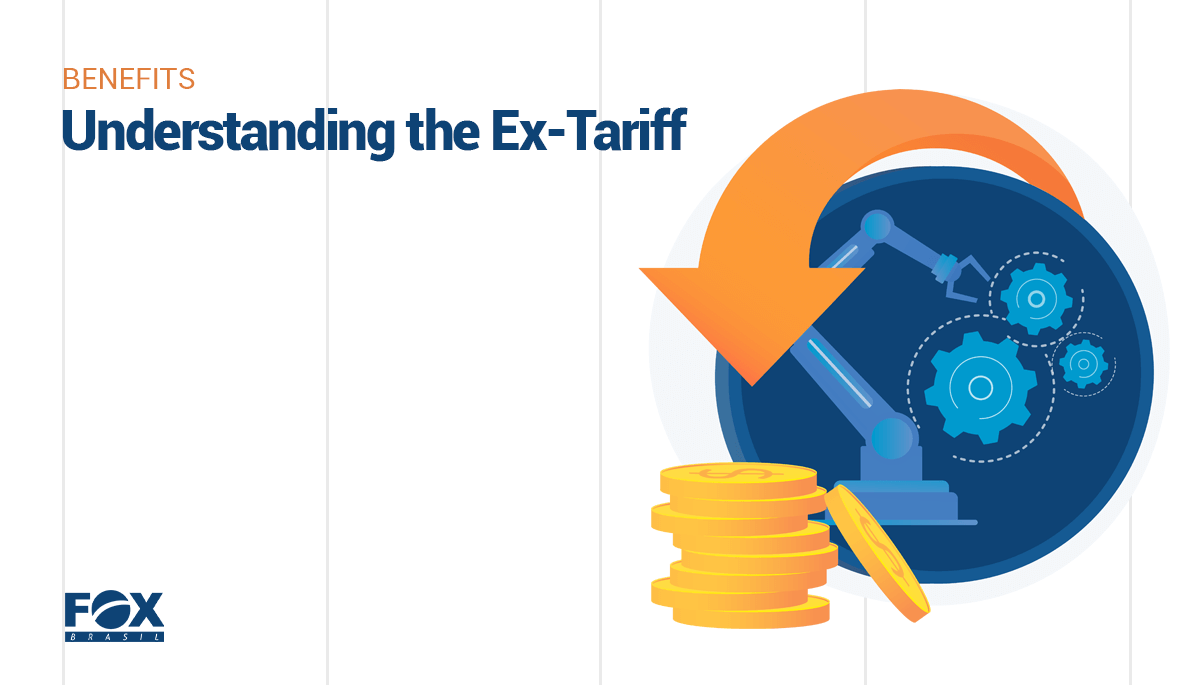Understanding the Ex-Tariff

Understand Logistics & Freight
To increase viability in international transactions and promote innovation, the countries that are a part of the Mercosur, and that includes Brazil, the biggest economy of the South American continent, have settled a tariff exception for specific imported products: Ex-Tariff, short for “Exemption from Tariff”. In this post, we cover which products are eligible for this benefit and what are the necessary steps to be taken in order to receive it.
The eligible products
Tech devices, parts, and telecommunication products that are not produced domestically in an amount proportional to the local demand or are not produced at all. By not having to pay for the importation taxes, there can be an increase of the entrance of these products in the Mercosur countries, which results in lower prices for the final consumers and increases innovation in national companies.
The necessary steps
In order to be granted this tariff exception, the importer needs to file a request containing a description of the product, including the technical specifications, the price, the technological differences from similar products which are produced within national territory, and the NCM code, which is the standardized identification code used in the Mercosur countries.
There are also more specific demands regarding the format of this declaration, such as it being limited to a single continuous paragraph with no explanatory parts, written in plural, containing no mentions of a brand, and it must be properly translated into the official language of the destination country of the goods.
The average time for the analysis to be made can go from 45 to 90 days and, when the declaration is accepted, the product becomes eligible to be imported with no taxes charged. It’s important to add that this benefit is not attached to the company that applied for it when it is granted, but instead to the description of the product that they issued to the government. That means that any company can take advantage of the Ex-Tariff when importing a product whose description matches with one that has been previously approved, since the benefit applies for the product, and not for the company, like it happens with other tax benefits such as the Drawback.
How Freight Forwarders Deal with Ex-Tariffs
For freight forwarders, understanding and managing Ex-Tariffs is crucial to ensuring a smooth logistics operation. Here are some key considerations:
- Documentation: Accurate and complete documentation is vital. Freight forwarders need to work closely with importers to ensure that all the necessary paperwork, such as certificates of origin, invoices, and product descriptions, is in order to qualify for Ex-Tariffs.
- Tariff Codes: Freight forwarders must be familiar with the harmonized system of tariff codes used worldwide. It’s essential to classify goods correctly to determine if they qualify for an Ex-Tariff.
- Stay Informed: International trade policies can change frequently. Staying up-to-date with changes in Ex-Tariffs and trade agreements is vital to ensure that your shipments comply with the latest regulations.
- Duty Drawback: In some cases, an Ex-Tariff might be applied retroactively. In such instances, freight forwarders can assist importers in obtaining a duty drawback for the previously paid tariffs.
Ex-Tariffs are a valuable tool in the world of international trade and logistics, as they enable the import of essential goods without the burden of customs duties and tariffs. As a freight forwarder, the understanding of Ex-Tariffs is essential for helping our clients navigate the complexities of global trade and optimizing their supply chains.
By keeping abreast of changing trade policies, collaborating with importers to ensure proper documentation, and accurately classifying goods, freight forwarders can ensure that logistics operations are compliant with Ex-Tariff regulations, ultimately contributing to the success of the clients’ business.